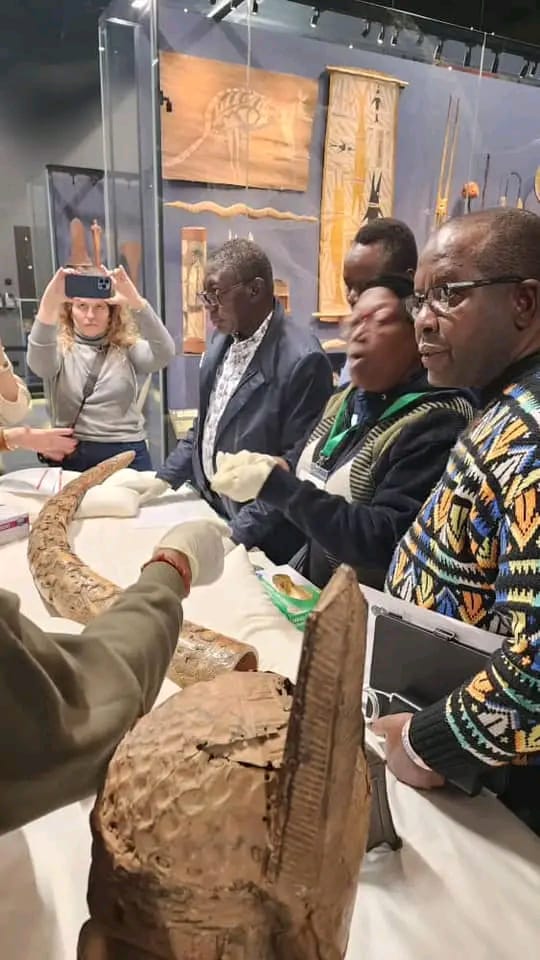The origin of museums in Nigeria dates back to pre-Europe era during which cultural materials of religious, political and social importance were fashioned, conserved and preserved in traditional shrines and palaces of traditional rulers’ stores and sometimes caves.
Museums are barometers for cultural changes. Museums could equally be seen as cultural incubators, because a museum is a place where people, irrespective of age, gender, colour, language and educational qualification, meet to share knowledge, tell stories through exhibition(s) and showcase history for fun and interactive ways.
Museum development in Nigeria has come a long way since the birth of the first museum, National Museum, Esie in Kwara state with over 1,500 soap story images, one of the largest in the world.
Museum has continued to provide a window into our past and help us understand our cultural lineage
Today, apart from government through the auspices of the National Commission for Museums and Monuments, the agency saddled with the responsibility of licensing, supervision and control of museums with about 53 museums and 65 national monuments across the nation, some institutions have established museums to their credits. Examples are the Currency Museum by the Central Bank of Nigeria (CBN), Force Museum by the Nigeria Police, Army Museum by Nigerian Army, etc. Some prominent individuals have also established museums to their credit. They include Yemisi Shyllon Museum of Art, Black Heritage Museum, Kalakuta Republic Museum, etc.
There is no gain saying that museums in Nigeria have not fared well due to the following challenges.
Poor Funding: The major challenge of Nigerian museums is funding as most museums rely on government for funding. This has affected the quality of exhibition(s) and other educational programmes and activities of museums. It also affects maintenance of museums’s facilities.
Poor Infrastructure: Most museums in Nigeria do not have effective infrastructure such as electricity, water supply and access road and these affect the audience’s (visitors) patronage.
Security Challenge: Most museums in Nigeria lack modern security gadgets such as cameras, alarms, detectors in their as well as skilled security personnel.
Most people still see museum as a place where idols are kept and therefore should not be visited because of their religion and belief. The cultural awareness about museums in Nigeria is very, very low.
Most museums show lack of interest, enthusiasm or concern about museum education vis-a-vis museum education programmes and activities, which is the fulcrum of a museum.
In order for any museum to meet up to the channel and yearning of its audience/visitors through electronic and efficient services, adequate funding should be made for museums’ administration, management and operation. Corporate bodies should equally be encouraged to key into museums’ funding through public private partnership (PPP).
A state of emergency should be declared on museums infrastructure by co-opting non-state actors in the provision of electricity, access roads, portable water, etc. towards enhancing an effective and efficient museums system.
Security of museum should be given adequate attention with the provision of modern gadgets (e.g cameras, alarms, and protectors). There is also the need for adequate training and re-training of its security personnel. Museums can partner with law enforcement agencies to enhance their security.
Museums management in Nigeria can promote cultural awareness by partnering faith based organisations, civil societies, National Orientation Agency (NOA), media and locals, to educate the populace on the importance, functions and benefits of museum to the community.
Adogah Angulu Abdullahi writes from National Commission for Museums & Monuments, Abuja.
